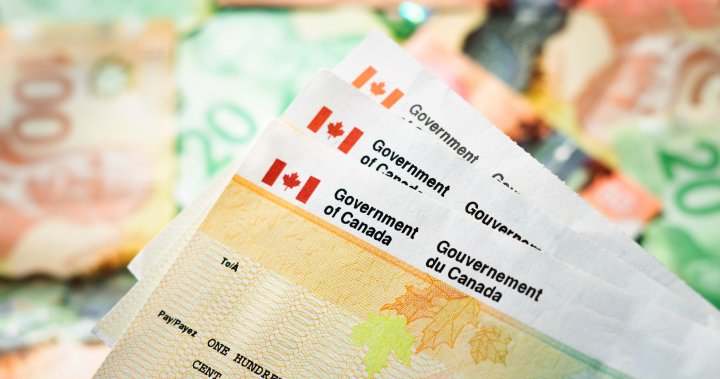
It’s a joy many Canadians are get to experience during tax season: after painstakingly plugging in every expense and income statement from last year, it turns out you overpaid the Canada Revenue Agency, and you get a tax refund!
If you’re lucky enough to avoid owing the CRA more money this time of year, your mind might start to race about the possibilities for what you could do with the extra dollars.
But with storm clouds looming in the economy and higher interest rates taking bigger chunks out of Canadians’ budgets, is now the time to treat yourself or to put more money away for a rainy day?
Here are a few things personal finance experts say you might want to consider when deciding how to spend a tax return.
(Oh, and if you haven’t filled those taxes yet, a quick reminder that the deadline for individuals to take care of that is Monday, May 1.)
Revisit your savings goals
When tax returns start hitting your account, it’s a good time to look back at some of the goals you set for yourself at the start of the year, says Sandy Yong, Toronto-based author of The Money Master.
While many Canadians are encouraged to get their finances in order in January, some of that momentum might have frayed a few months on, she says.
A sudden influx of cash could be just what’s needed to get your priorities back on track, Yong argues.
“It’s a matter of prioritizing what you think is most important and how your tax refund will help you improve your financial situation.”
Many Canadians might end up with a tax refund because of their contributions to a registered retirement savings plan (RRSP), which reduces your taxable income for the previous year.

Rubina Ahmed-Haq, personal finance expert and host of For What It’s Worth on the Corus Entertainment radio network, says the most efficient way to use that extra cash is to put it right back into your RRSP to maximize your long-term savings goals.
Doing so reduces the amount you’ll pay on your taxes next year and allows you to invest or save that money for retirement, at which time you’ll withdraw it and hopefully pay a lower tax rate on that income.
“I know that’s the most boring advice that anyone can get,” says Ahmed-Haq. “But really, that is the most prudent thing that you can do and kick-start your retirement savings for the 2023 year.”
Yong says that for parents, one way to carry forward the momentum of a tax return is through contributions to a registered education savings plan (RESP).
If you put in at least $2,500 annually to this account, the federal government will contribute an extra $500 through the Canada Education Savings Grant, which becomes a top-up for your children’s education savings, she says.
Paying down debt vs. boosting emergency savings
One new wrinkle that Canadians might want to consider for this year’s tax return compared with last is a rapid rise in interest rates over the past year.
The Bank of Canada ratcheted up the cost of borrowing in one of the fastest tightening cycles in its history to tamp down inflation, and in doing so, has made interest costs on certain kinds of debt much more expensive than a year ago, when the central bank’s policy rate was near record lows.
Credit card debt, which typically carries high interest rates at upwards of 20 per cent, can be particularly damaging to Canadians’ finances and “snowball” out of control, says Yong.
Given the surging amounts Canadians are now paying on high-interest debt such as credit cards or unsecured lines of credit, Ahmed-Haq says paying down loans can also be a fruitful way to maximize the impact of your tax refund.
“Your money would go a long way if you took that refund and paid that debt down,” she says.

If they haven’t been paying more via variable-rate mortgages already, many Canadian homeowners are also now facing higher monthly payments on their fixed-rate loans as their terms come up for renewal.
Yong notes that now could be an opportunity to make a lump-sum payment on your mortgage, assuming the terms of your loan allow you to do so without significant penalties. Doing so can limit the impact of higher interest on your payments as the principal of the loan is paid down.
After debt and long-term investments are taken care of, experts say it’s worth keeping an eye on the horizon to make sure you’re prepared for a layoff or other hit to your income amid fears of a recession in 2023.
“Just having some cash cushion is always really helpful in the event of a job loss,” Yong says.
An emergency fund of three-to-six months’ worth of expenses should be kept in a high-interest savings account where it’s accessible at a moment’s notice, not tied up in high-risk investments, tangible assets or accounts with any barriers to withdrawals, says Ahmed-Haq.
But seriously, can I treat myself?
After all of the pressing needs are met and the long-term planning demands are satisfied, it’s time to ask the question — can you treat yourself?
The 2023 tax season comes as inflation is finally starting to ease up on Canadian households after reaching 41-year highs the year before, which itself arose after multiple years of hardship in the COVID-19 pandemic.
If Canadians are tired of having their hard-earned income siphoned off at the gas pumps or the grocery store and suddenly find they have a bit of unexpected spending money, Yong says there’s no reason to feel bad about spending it on something for yourself.
“I think being able to enjoy all of the hard work and the fruits of our labour is also really important,” she says.
Ahmed-Haq says there might be a legitimate psychological element to spending your tax refund on a pick-me-up, especially if it came about because you claimed a capital loss on your taxes this past year from selling an investment that didn’t quite pan out.
If you decide to go the treat-yourself route, Ahmed-Haq recommends spending your money on something limited like a mini-vacation or a nice dinner.
“I would not take that money and buy a whole new wardrobe or buy a brand-new car or buy something that’s going to really put a big dent into your finances,” she says.

Is a tax return actually a good thing?
While getting a lump sum in your tax returns can be exciting for Canadians, Ahmed-Haq actually argues that most Canadians should be doing their tax planning to try to avoid getting sizable returns.
In actuality, tax refunds are a reflection that you’re simply paying too much in income tax to the CRA through the year.
These can be for legitimate reasons, such as an RRSP deduction, but Ahmed-Haq says this can also happen because there are accounting mismatches happening in how your employer records your salary, or if you’re a business owner, you might be paying too much on some of your expenses through the year.

“A lot of Canadians, when they get that refund, they feel it is as if it is free money; as if it’s money that is coming from the government as a present,” she says.
“They’ve had that money since December ’til now, and they’re now paying you back because you paid too much in income tax.”
When the government pays you that money back, it means they’ve held onto your money almost as a loan that pays zero interest, Ahmed-Haq says.
While it may not be as fun at tax time to owe some money, she argues this is actually a better position to be in because even after you settle up with the CRA, it means you’ve kept more of your income and can make it work for you in whatever way you need through the year.
“That’s a much better situation to be in than getting a big refund back.”
















